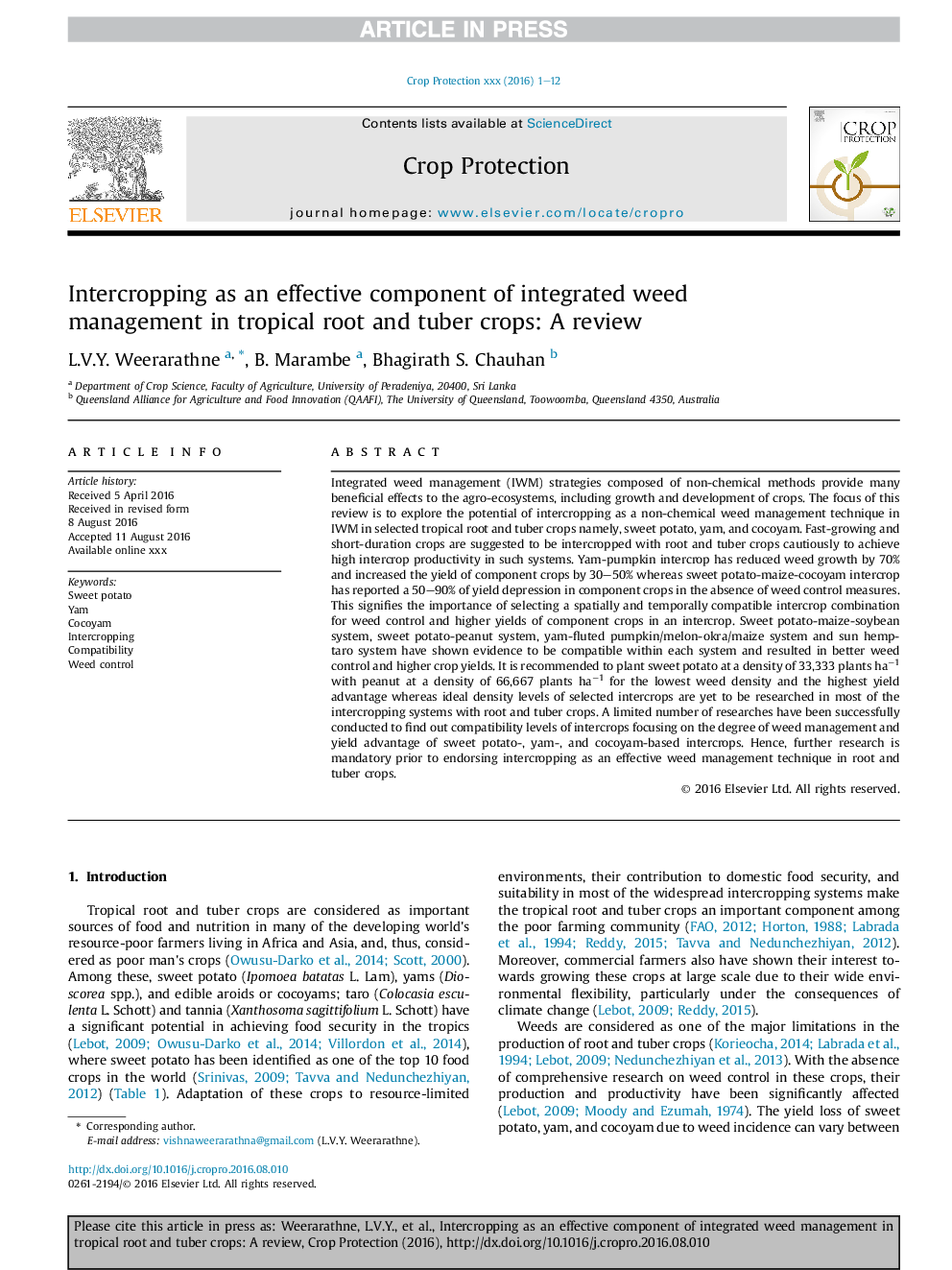| Article ID | Journal | Published Year | Pages | File Type |
|---|---|---|---|---|
| 5760847 | Crop Protection | 2017 | 12 Pages |
Abstract
Integrated weed management (IWM) strategies composed of non-chemical methods provide many beneficial effects to the agro-ecosystems, including growth and development of crops. The focus of this review is to explore the potential of intercropping as a non-chemical weed management technique in IWM in selected tropical root and tuber crops namely, sweet potato, yam, and cocoyam. Fast-growing and short-duration crops are suggested to be intercropped with root and tuber crops cautiously to achieve high intercrop productivity in such systems. Yam-pumpkin intercrop has reduced weed growth by 70% and increased the yield of component crops by 30-50% whereas sweet potato-maize-cocoyam intercrop has reported a 50-90% of yield depression in component crops in the absence of weed control measures. This signifies the importance of selecting a spatially and temporally compatible intercrop combination for weed control and higher yields of component crops in an intercrop. Sweet potato-maize-soybean system, sweet potato-peanut system, yam-fluted pumpkin/melon-okra/maize system and sun hemp-taro system have shown evidence to be compatible within each system and resulted in better weed control and higher crop yields. It is recommended to plant sweet potato at a density of 33,333 plants haâ1 with peanut at a density of 66,667 plants haâ1 for the lowest weed density and the highest yield advantage whereas ideal density levels of selected intercrops are yet to be researched in most of the intercropping systems with root and tuber crops. A limited number of researches have been successfully conducted to find out compatibility levels of intercrops focusing on the degree of weed management and yield advantage of sweet potato-, yam-, and cocoyam-based intercrops. Hence, further research is mandatory prior to endorsing intercropping as an effective weed management technique in root and tuber crops.
Related Topics
Life Sciences
Agricultural and Biological Sciences
Agronomy and Crop Science
Authors
L.V.Y. Weerarathne, B. Marambe, Bhagirath S. Chauhan,
